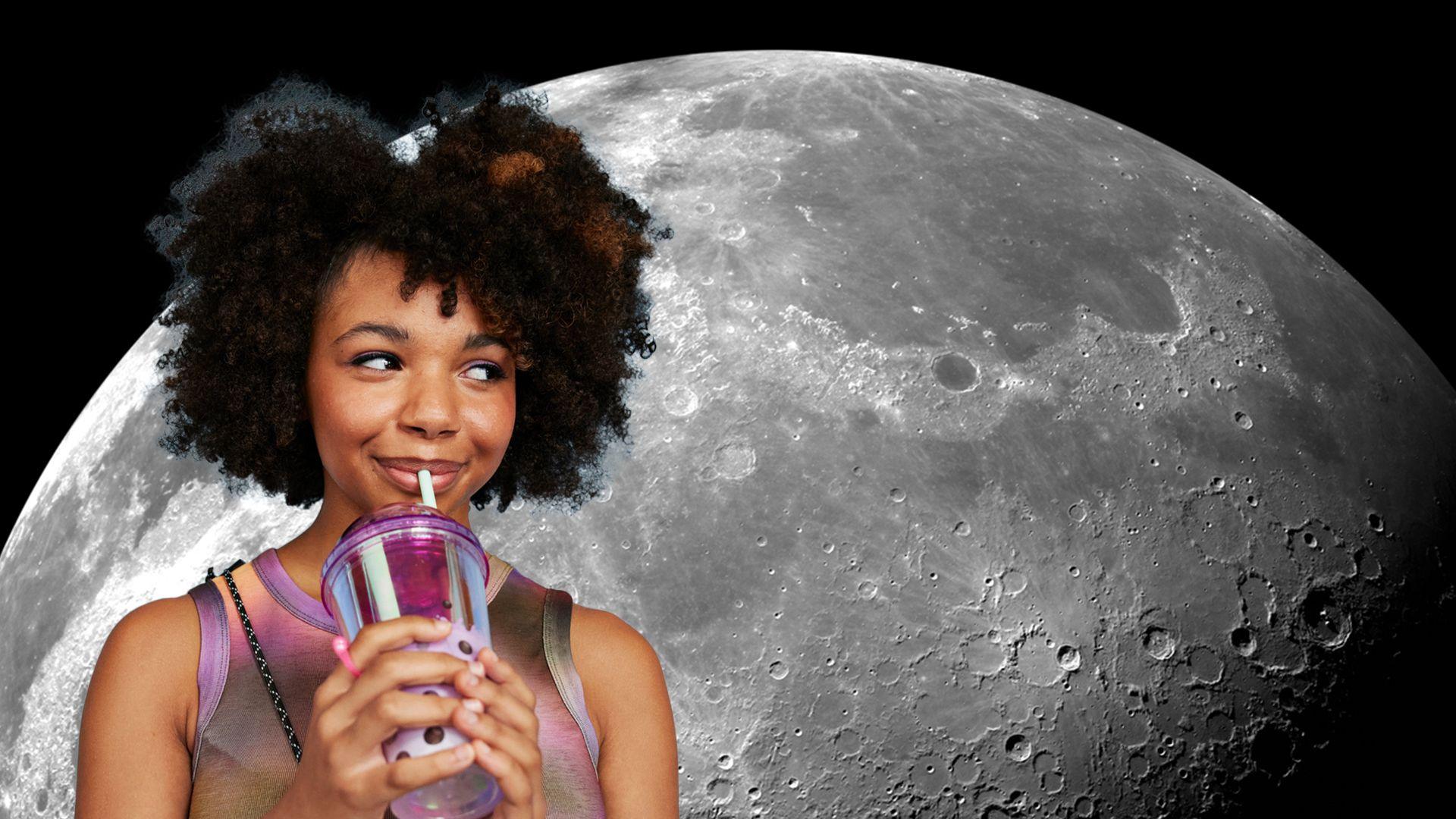Is there drinkable water on the Moon?

Lunar ice and soil may hold the secret to accessing drinking water on the Moon
- Published
Could humans drink water found on the Moon?
That's the question that scientists are trying to answer as part of the UK Space Agency's Aqualunar Challenge.
Ten different teams are competing to create new tech that will allow astronauts to have access to safe water, which they can use for drinking as well as growing food on the Moon.
They've each been awarded 拢30,000 to develop their ideas, from a pot of money from the UK and Canadian space agencies.
The winners will be announced in Spring next year, and it's hoped the best one will play a key part in Nasa's mission to create a permanent base on the Moon.
More outer space stories:
- Published22 July
- Published19 July
- Published12 July
There's lots of ideas about how scientists might find and purify Moon water so that it's safe to drink
The next stage in Nasa's Artemis missions will take place no earlier than September 2025, where a crewed flight will travel around the Moon.
Their long term ambitions are to create a lunar space station, but this relies on astronauts being able to survive there with clean drinking water.
For Meganne Christian, a reserve astronaut and chair of the competition's judging panel, the Aqualunar Challenge will be key to the success of Artemis.
Meganne says: "It is expensive and risky to send a continuous convoy of rockets from Earth to the Moon to keep a base supplied.
"That's which is why we need to develop the technologies that can purify the water that is already on the Moon."
Is there water on the Moon?
The ten finalist teams will showcase their ideas at the Farnborough Air Show this Friday
According to Nasa, the Moon is 100 times drier than the Sahara Desert - but that doesn't mean getting water from there is impossible.
The UK Space Agency estimates that over 5% of the Moon's soil - called regolith - is water frozen as ice, and if this can be extracted, then it's all systems go!
Some of the ideas in progress include using a giant curved mirror to focus the Sun's rays on boiling lunar ice, as well as bits of scientific components made from diamonds.
This might help science back on Earth, too, with UK Space Agency CEO Paul Bate saying: "Space exploration pushes our knowledge to its limit and spurs innovation, resulting in new products and services that can also benefit citizens on Earth."
